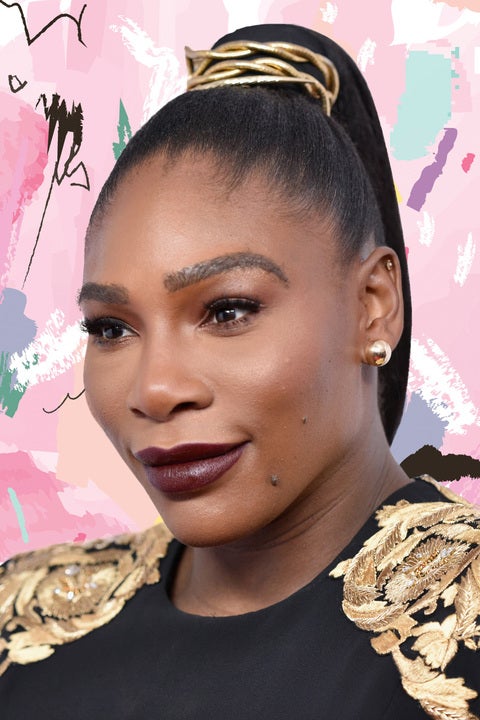
On the tennis court, it feels like Serena Williams is unstoppable. She’s fast, powerful, and plays with focused determination, launching 120 mph serves at her opponents with stunning precision. Over the course of her two-decade long career, Williams has racked up 23 Grand Slam titles, making her the greatest tennis player of all time.
Williams’ ascendancy, however, has made her a target of both sexist and racist attacks. In 2015, the New York Times came under fire for an article about body image that pitted Williams against her peers who preferred more “feminine” body types, and Harry Potter author, J.K. Rowling, once famously took down a man who said the tennis champ was “built like a man.” While fans are used to seeing Williams at her most commanding self, in Being Serena, HBO’s new five-part docuseries, viewers will be taken behind the scenes to get a glimpse of Williams we rarely see.
Narrated by the tennis star herself, featuring interviews with her inner-circle and never-before-seen footage, Being Serena follows Williams through the final weeks of her pregnancy, life-threatening childbirth, her fairytale wedding, and road back to the court. While Williams’ social media followers know the 36-year-old loves to have fun, on Being Serena we see her true superpower: vulnerability.
Black women aren’t always allowed to be vulnerable. Instead, our strength and resilience is often touted as a badge of armor, as is our ability to “save” others from themselves. In the wake of Kanye West’s epic rants about Donald Trump and his problematic view of slavery, Hot 97 radio host Ebro tweeted, “Is there a Black Woman willing to give Kanye a hug? A hug from a Black Woman can save your life.” While his comment was likely meant to be a testament to the magic of Black women, this type of thinking leaves many of us putting ourselves dead last on our to-do lists. In Being Serena, we see the tennis star let her guard down, allowing others to shoulder some of the heavy burden she places on herself.
Her husband, Reddit co-founder Alexis Ohanian, is an amazing comfort to the star athlete. Though she admits the pair are quite different — “I’m an athlete. He’s a business guy. I’m Black. He’s White. We are totally opposite,” she says in the first episode — Williams explains their differences also work in their favor. “I think we just complement each other. I think we understand hard work in different ways,” she explains.
In Being Serena, Williams swoons at her man in a way many Black women dream of watching on screen, but rarely actually get to see. In one scene the couple jokes about swaddling babies, and in another, they cozy up in an embrace, Ohanian standing behind Williams rubbing her pregnant belly while she reclines into his embrace and exhales. Though accomplished Black women are often told they need to be sure not to emasculate their partner, Williams is her same funny, witty, ambitious, sometimes annoyed (hey, she’s pregnant!) self with Ohanian. And while most reality shows are filled with arguing couples airing their relationship drama out on screen, Ohanian and Williams look genuinely happy. He’s a doting partner and father, cheering Williams on and comforting her when she’s tired or worried about her abilities to be a mom, and despite being a perfectionist, she believes him.
“Serena just has another gear she can shift into, both physically and mentally,” he says when talking about her now-infamous 2017 Australian Open win. “I think that’s why she’s been so successful.”
In the series, Williams says much of her efforts are driven by fear. She is afraid she won’t be a good mother, afraid she won’t ever recapture her number one tennis spot after having a child, afraid she will fail. While some allow fear to keep theme paralyzed in inaction, Williams uses it as a motivating force.
“Fear has always been valuable in my life,” she says in the first episode. “Without fear, without doubt, without discomfort in what we’re doing, what is there for any of us to overcome?”
Though she’s worked tirelessly to reach the top of her profession and is arguably the greatest athlete of all time, like many Black women, Williams still feels like she has something to prove.
“Now that I’m 36 and I have a baby, am I supposed to lower my expectations?” she asks after giving birth to little Alexis Olympia Ohanian Jr. “That’s not something I’m used to doing.”
And judging by the commitment the star displayed in the refreshing and honest docuseries, Williams’ return to her beloved sport, and the top, is on the way.
